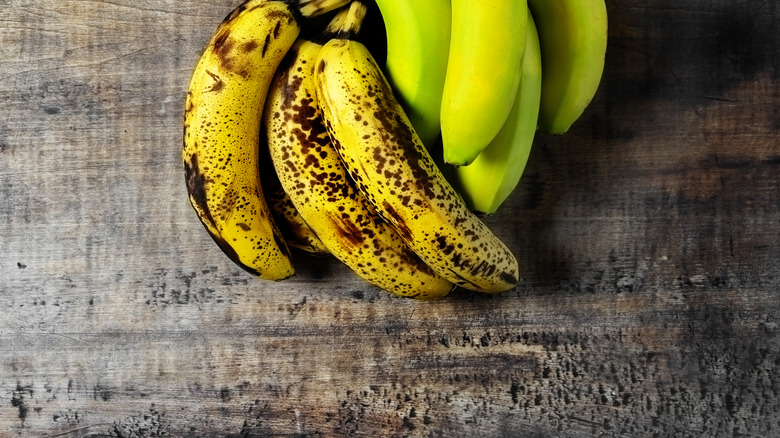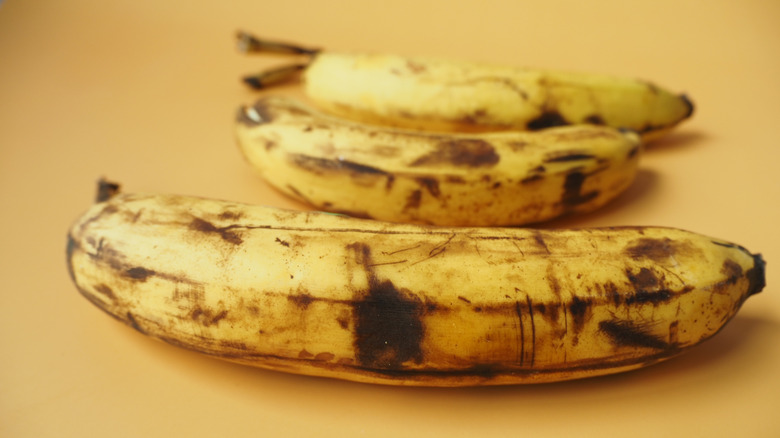The Biggest Red Flag To Avoid When Picking Out Bananas
Who doesn't love a good banana? It's a healthy snack, a perfect companion to breakfast, and even when they get a little too ripe to eat on their own, you can still use them to make banana bread so good, you'll have to call it cake. But when you're picking out a bunch at the grocery store, you should be keeping an eye out for a few things to make sure you get the most out of your banana's lifespan. First and foremost: avoid a detached stem. That's about the biggest red flag you could run into.
What's the big deal with a detached stem or neck? While you may need to get over some of your banana hangups (like refusing to eat bananas as soon as brown spots show up on them), this is one thing you shouldn't ignore. You see, if a banana's stem is already snapped, bacteria and air can get inside the fruit. You wouldn't buy an apple that's already been cut open, would you? You can't properly clean the fruit if it gets dirty, so do yourself a favor and give those broken-stem bananas a hard pass.
Other signs of a bad banana to keep your eye peeled for
First things first: know the difference between ripe spots and bruises. If your banana has speckles of brown on it, that's totally fine and normal. But if you see a dark, sunken spot on the peel, that's probably a bruise instead, and the flesh underneath is almost certainly bruised, too. The integrity of the peel may have also been damaged, or it could have a cut or tear in it that would let those nasty microbes or just straight-up dirt get in, the same as it would have if the stem were torn or gone.
Once you've bought the banana, you're not exactly in the clear either. Because of the ethylene they produce, bananas ripen so quickly that you can actually use them to ripen other fruits. You'll eventually hit a point where the banana is simply too ripe for you to do anything with it. Usually, this is when both the inside and outside of the fruit are brown, or the outside is black. If your banana starts to leak liquid, it's definitely on the way to rotten if it isn't already, so just throw that bad boy out. This is also why you should store ripe bananas in the fridge; it'll give you a bit of extra time to work with the fruit before it putrefies. Keep these tips in mind and avoid those broken stems — and you'll have a much easier time with your bananas.

